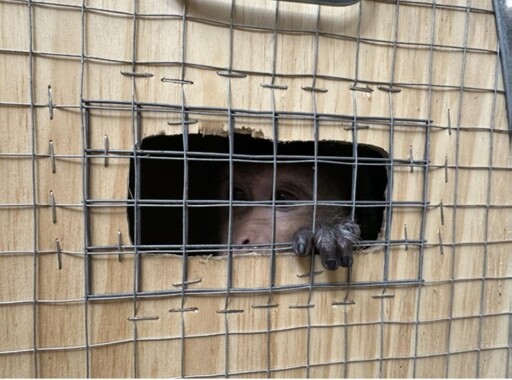- A new report is the latest to bolster long-standing allegations that many long-tailed macaques imported into the U.S. for biomedical research were illegally caught from the wild and falsely labeled as captive-bred, with suspiciously high birth rates at breeding facilities in Southeast Asia.
- Cambodia became a major supplier of monkeys for research after China stopped exports in 2020, but investigations found indications of large-scale monkey-laundering operations, leading to legal cases, failed prosecutions, and a 64% drop in exports by 2023. Despite concerns, global wildlife trade regulator CITES did not ban the trade.
- Vietnam’s reported monkey exports also show discrepancies, with new “satellite breeding facilities” appearing without proper documentation, raising concerns that wild monkeys are also being trafficked into breeding farms.
- A tuberculosis outbreak linked to Vietnamese monkey exports highlights the public health risks, while U.S. company Charles River Laboratories faces scrutiny over its alleged role in the illegal monkey trade, seeming to benefit from political ties to evade accountability.



heh